The UN Science-Policy-Business Forum on the Environment convened its Third Global Session online from 18-20 February 2021, in the lead up to the Fifth Session of the UN Environment Assembly. During the Forum, the Global Partnership on Marine Litter, co-hosted a session on “Managing Risk: Marine Litter and Microplastics Mitigation and Prevention”. This session included speakers representing different stakeholders from UNEP, the Kenyan and Japanese Ministries of Environment, GEO Blue Planet, Greenpeace, Environmental & Indigenous Rights Advocate Group, the European Investment Bank and industry.
From microplastics to derelict fishing gear, various forms and sizes of marine litter are found from coastal shores to the depths of the oceans, and even in remote areas far from human contact. Marine litter has become a multi-dimensional problem with economic, environmental, cultural, and human health costs.
The session highlighted the risks of marine litter and plastic pollution for society and ecosystems as proven by scientific research, and the need for urgent policy actions. Speakers discussed the role of technology, innovation and mutli-stakeholder cooperation in managing and mitigating the risk of marine litter. The session also showcased the recently launched Global Partnership on Marine Litter Digital Platform, which will serve to coordinate multi-stakeholder action towards the long-term elimination of discharges of litter and microplastics into our oceans. To watch the recording of the full session, click here.
During the session, the head of the GEO Blue Planet EU Office, Audrey Hasson from Mercator Ocean International, spoke about the challenges and opportunities of monitoring marine litter. Audrey presented the wide range of plastic types and sizes, and the multiple technologies used to monitor plastic, resulting in a multitude of heterogeneous observations. Overcoming the challenges surrounding processing and combining these observations using machine learning and other IT techniques, will contribute to the solution for addressing the impact of marine pollution, guiding informed policies, and directing in situ actions. They also can be used to monitor the effectiveness of policies, actions and societal behavioural changes aiming to curb marine litter.
Audrey Hasson leads of the GEO Blue Planet’s Working Group on Marine Debris, which serves as a forum for the international marine litter community to coordinate activities, network and exchange information. The Working Group collaborates with GPML on the Digital Platform. It also seeks to identify information gaps and share best practices used to monitor marine litter to inform policy recommendations and to measure the impact of mitigation strategies. These actions in turn will contribute to the UN’s Sustainable Development Goal 14.1: “by 2025, prevent and significantly reduce marine pollution of all kinds, in particular from land-based activities, including marine debris and nutrient pollution”.
Useful Links





